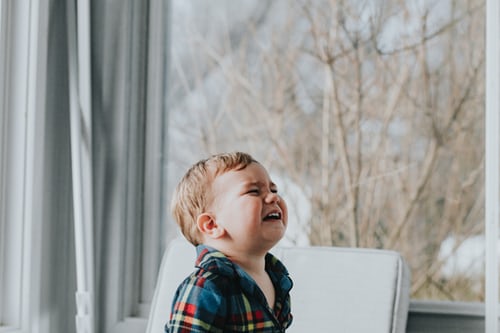As a babysitter, there may be times when you need to deal with an upset or distressed child. It is important to fill your metaphorical childcare toolbox before babysitting in order to be able to deal with these situations in the most effective and compassionate way.
Of course, the best plan of action is prevention, rather than cure. Laying the groundwork will help the child feel secure with you as their babysitter when the time inevitably comes that the parents have to leave.
Preparation
Following are some tips and ideas for helping children feel secure in your care.
- Visit and meet the child at least once, preferably several times, before the time comes that you’ll be needed to babysit. Getting to know you a little first will be key in the child being happier to have you look after them.
- When you meet the child, make sure you spend some time getting down to their level and playing with them. Ask them questions to help them feel as though they are important to you.
- Make some plans with them in advance, if they are old enough to understand. You might try asking them what their favourite game is, and ask them if you can play it together when you look after them. You could also tell them that you’ll bring some home-made play dough with you to play with – it’s easy to make and costs practically nothing, and most kids get very excited about it. However, if you make promises, make sure you keep them!
- Take a small soft toy with you and give it to the child, asking them to take care of it until you see them next when you can play with it together. This will help the child feel connected to you and look forward to your return.
When the parents leave
It is incredibly common for children of all ages to become upset when their parents leave. They may melt down at the point of the separation, or they might become upset later on. Either way, you will need to deal with this in a kind and understanding way.
- Remember that this is a big deal to them. Just because they are little doesn’t mean their feelings are any less important.
- Tempting as it may be, don’t immediately try to distract them out of their sadness. If a friend of yours was upset about something, you wouldn’t try to get them to think about something else – you’d listen. There’s nothing wrong with making suggestions of things to do, but don’t try to ‘snap them out of it’.
- Empathise with them. Even very young children can understand when somebody is making an effort to understand how they feel. Saying things like “You’re so sad because your mummy left and you wanted her to stay” and “I can hear how sad you are. I understand how you’re feeling right now” will help them feel as though their feelings are real, and important to you.
- Reassure the child that their parent(s) will be home soon and that you promise you will keep them safe until then .


